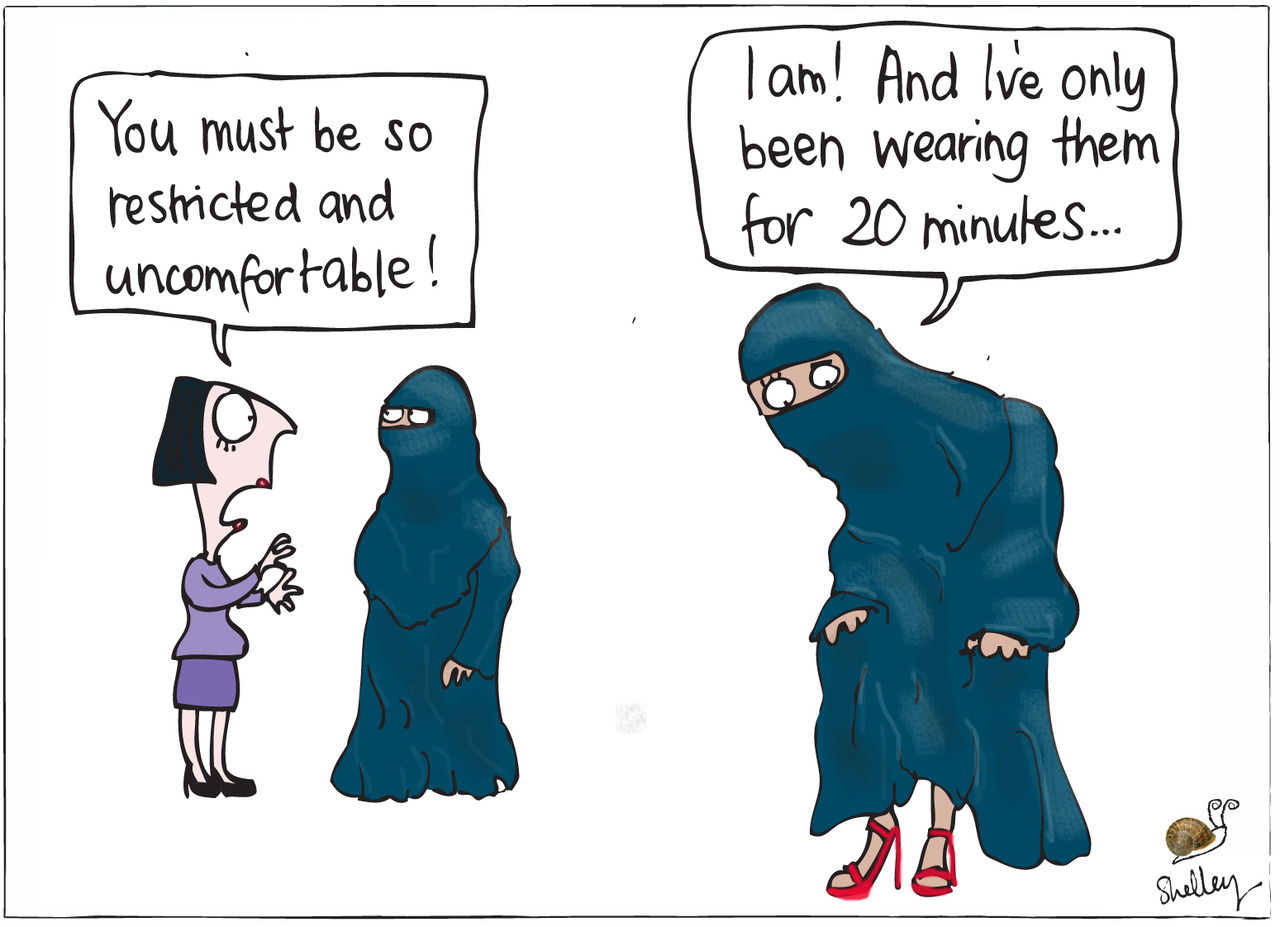A very simple question: As a feminist would you ban the Burka and/or the Niqab?
This came up in another thread and My initial reaction is "no". The reason is because I believe in religious liberty (except at my most meglomanic moments anyway) and think women have the right to chose what they wear.
However, I realise there is another view that the burka and the niqab are considered oppressive to women and that they should be banned to defend women's rights and the norms of secular feminism. I haven't heard this view presented in depth though so it seems worth discussing.
What is your view? (Islamic feminist views especially welcome.)
This came up in another thread and My initial reaction is "no". The reason is because I believe in religious liberty (except at my most meglomanic moments anyway) and think women have the right to chose what they wear.
However, I realise there is another view that the burka and the niqab are considered oppressive to women and that they should be banned to defend women's rights and the norms of secular feminism. I haven't heard this view presented in depth though so it seems worth discussing.
What is your view? (Islamic feminist views especially welcome.)

